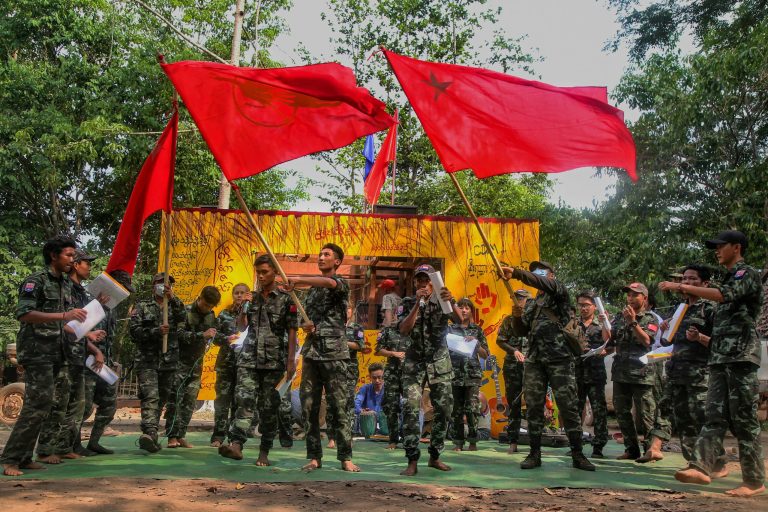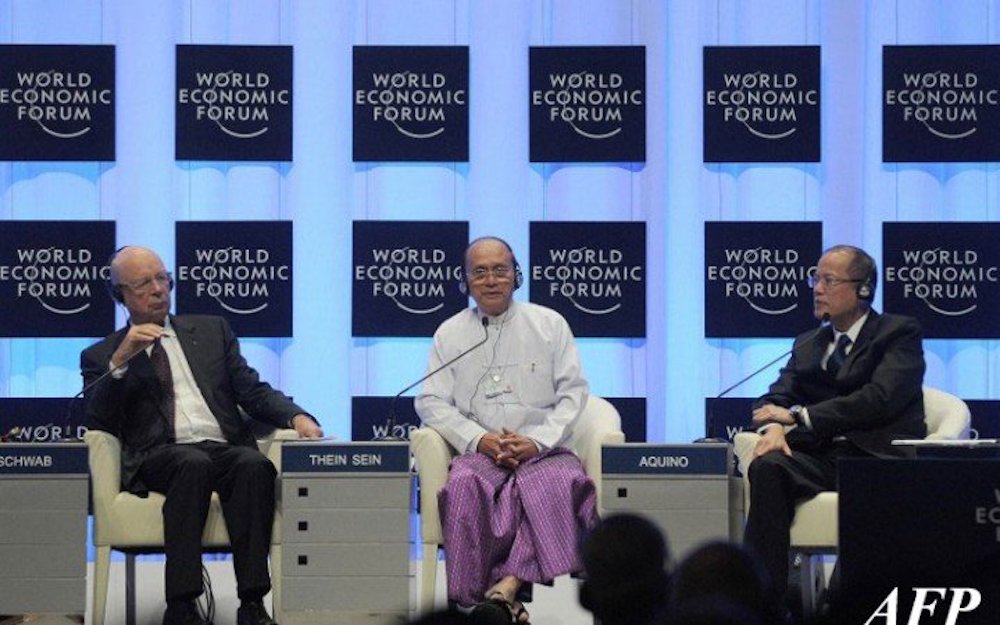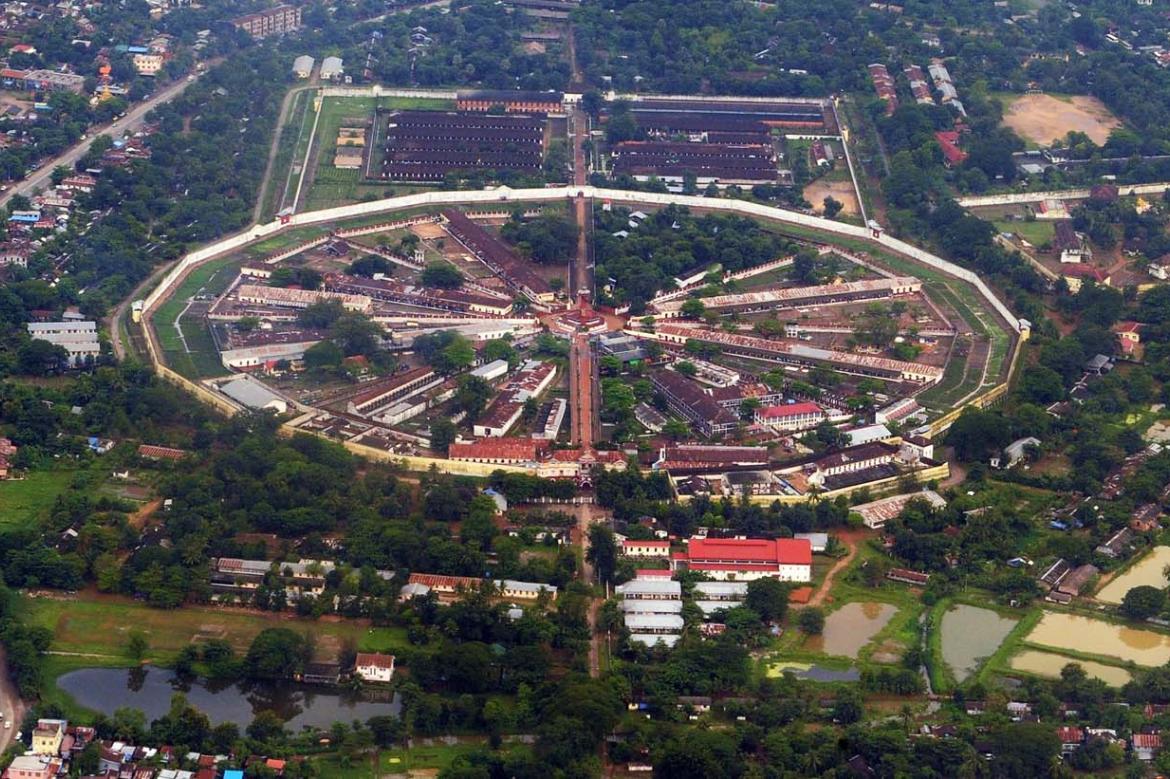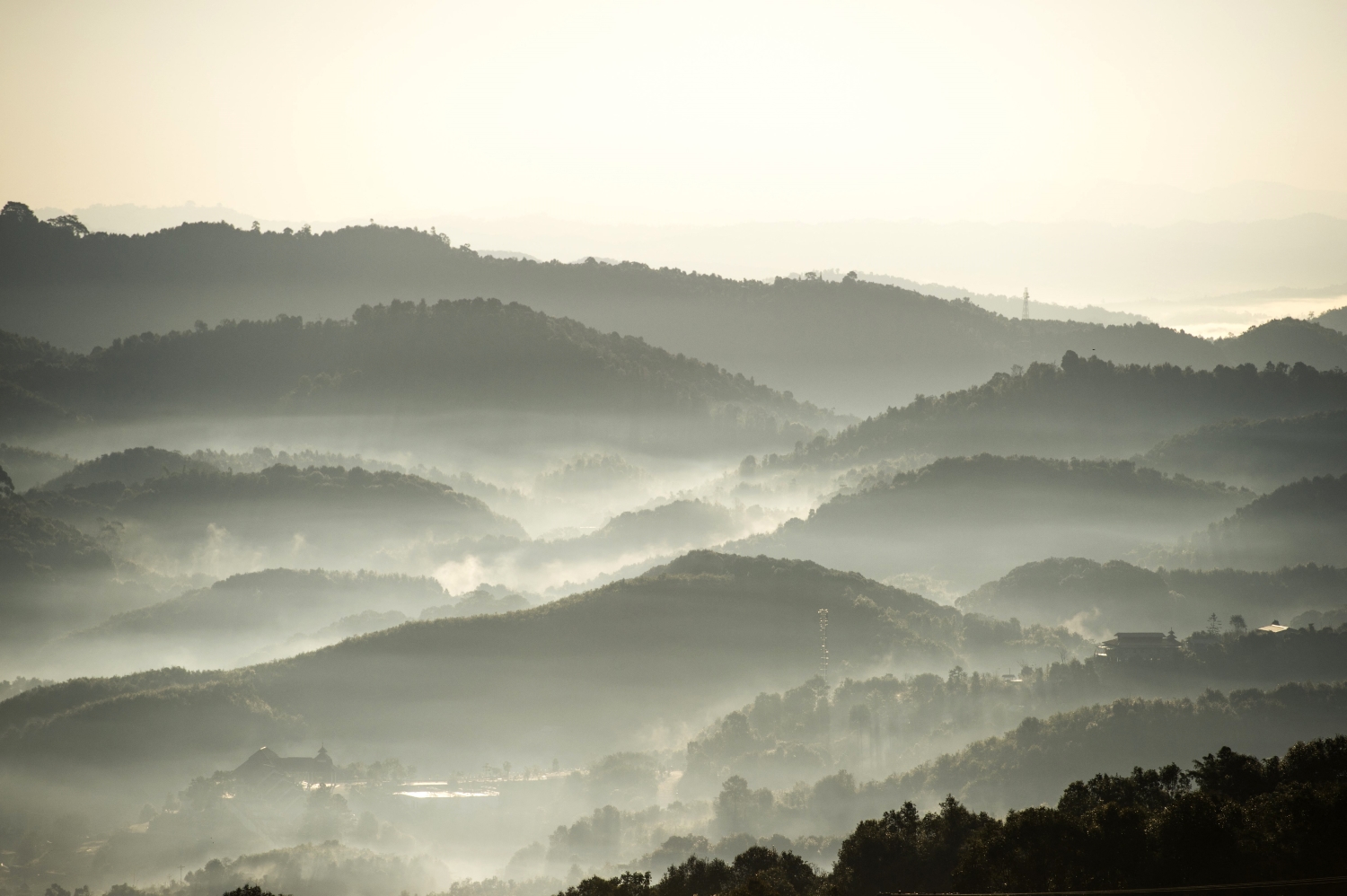Former rebel student army, the All Burma Students Democratic Front, has called on the government to include all the country’s ethnic groups in the peace process aimed at ending decades of civil conflict.
By OLIVER SLOW | FRONTIER

ABSDF chairman U Than Khe speaks at the launch of the group’s new book “Struggle for Peace” in Yangon on August 6. (Ann Wang / Frontier)
“The government is talking about the reform process, but this reform must affect everybody, not just one group,” ABSDF chairman U Than Khe told Frontier. “The reform must include things such as power sharing, resource sharing and everything that benefits the people,” he said.
U Than Khe was speaking at the launch in Yangon on August 6 of Struggle for Peace, a book published by the ABSDF about its sometimes violent history.
He said the ABSDF, which supports the establishment of a federal union, is committed to a peaceful resolution of the civil conflict that has plagued the country since independence in 1948.
Support more independent journalism like this. Sign up to be a Frontier member.
“Our root cause is the political cause, so we need to find a political settlement,” U Than Khe said. “Without a political settlement, the conflicts in this country will never come to an end.”
The ABSDF, which became the 14th resistance group to sign a truce with the government in August 2013, has been involved in the effort to achieve a national ceasefire agreement. Building trust between the government and ethnic organisations was crucial, said U Than Khe, who declined to speculate on whether a ceasefire agreement would be signed before the election.
“It depends on the components and results of the real dialogue between all senior delegates,” he said. “If we want real change, the first thing we need is commitment from the government and, at the same time, we need to show sincerity.”
The ABSDF was formed on November 1, 1988 by students who fled to the border with Thailand after the brutal crushing by the military earlier that year of the national uprising that came within weeks of toppling the government.
“In 1988, after going to the border, we had three options: join a political organisation, work with the student union groups underground or join the armed resistance movement,” U Than Khe said. “We chose the third,” he said. “In order to overthrow the military dictatorship and to change the country’s political system, we needed all kinds of pressure, including armed pressure.”
The ABSDF’s headquarters was based in an area under the control of the Karen National Union, but it operated in areas controlled by the Kachin Independence Army as well as the KNU. Most of its camps were along the border with Thailand but it also had bases on the borders with China and India.
In March this year, a committee formed by the ABSDF released its findings on the deaths in Kachin State in the early 1990s of 35 of its members who were executed or tortured to death after being accused of being government spies.
The report largely exonerated the eastern-border based ABSDF-Central of any role in the killings, saying it had little control at the time over ABSDF-Northern.
“It is part of our history,” said U Than Khe, referring to the killings. “But our group has been active for 25 years and thousands of people have sacrificed their lives,” he said. “It is part of our story, but it is only a small part of our history.”






